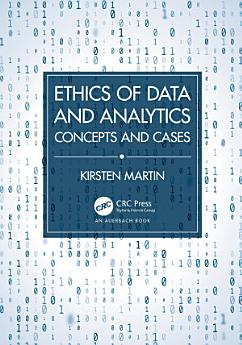Ethics of Data and Analytics: Concepts and Cases
About this ebook
Ethics of Data and Analytics: Concepts and Cases does not search for a new, different answer or to ban all technology in favor of human decision-making. The text takes a more skeptical, ironic approach to current answers and concepts while identifying and having solidarity with others. Applying this to the endeavor to understand the ethics of data and analytics, the text emphasizes finding multiple ethical approaches as ways to engage with current problems to find better solutions rather than prioritizing one set of concepts or theories. The book works through cases to understand those marginalized by data analytics programs as well as those empowered by them.
Three themes run throughout the book. First, data analytics programs are value-laden in that technologies create moral consequences, reinforce or undercut ethical principles, and enable or diminish rights and dignity. This places an additional focus on the role of developers in their incorporation of values in the design of data analytics programs. Second, design is critical. In the majority of the cases examined, the purpose is to improve the design and development of data analytics programs. Third, data analytics, artificial intelligence, and machine learning are about power. The discussion of power—who has it, who gets to keep it, and who is marginalized—weaves throughout the chapters, theories, and cases. In discussing ethical frameworks, the text focuses on critical theories that question power structures and default assumptions and seek to emancipate the marginalized.
About the author
Kirsten Martin is the William P. and Hazel B. White Center Professor of Technology Ethics at the University of Notre Dame’s Mendoza College of Business. A professor in the IT, Analytics, and Operations department but focus on the ethics of data and analytics, she has been teaching business ethics in a business school for 15 years and has experience writing and teaching on the ethics of data, analytics and privacy. Her research focuses on privacy, accountability, technology, algorithms, and ethics Martin is the editor of the "Technology and Business Ethics" section in the Journal of Business Ethics. She is the coauthor of a recent book on business ethics for the popular press (The Power of And) and has a popular Ted talk on privacy and data. She holds Ph.D. and MBA degrees from the University of Virginia’s Darden School of Business and a B.S. Engineering is from the University of Michigan.




